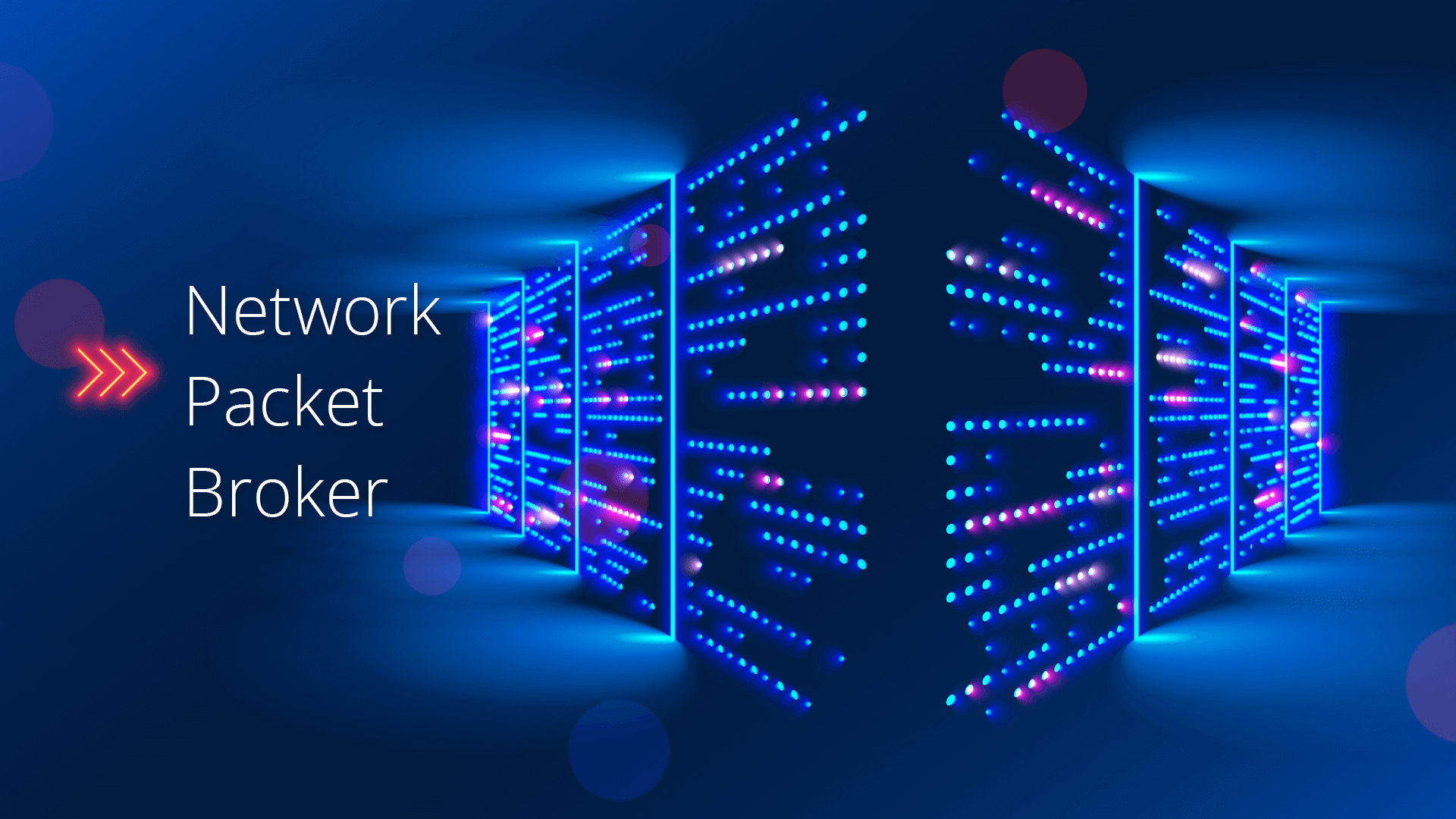Network Packet Broker: Why do you need one?
In the past, network monitoring and security tools were typically directly connected to network links or switches to capture all the traffic passing through those links. However, as network traffic volumes skyrocketed, this approach became impractical as the tools couldn’t handle the massive volume of traffic, resulting in performance degradation and increased latency. To address these issues, Network Packet Brokers were developed.
What is a Network Packet Broker (NPB)?
Network Packet Brokers, also known as monitoring switches, tool aggregators, and data access switches, are hardware devices that are used to gain insight into exactly what traffic is required for those solutions to perform better. They generate this information by facilitating security and monitoring technologies. Network Packet Brokers can reduce resource waste, costs, and of course, the possibility of hacking. This is because NPBs can apply specific rules and filters before they forward the traffic to your various network tools, such as performance management, network security, and other monitoring tools.
The ‘Broker’ in Network Packet Broker refers to its ability to combine, integrate, separate, manipulate, and process inputs from many sources, delivering the data to a wide variety of appliances and tool destinations. Delivering the right data to the right tool will optimize security and performance.
Why do you need NPBs?
Network packet brokers (NPBs) play a pivotal intermediary role within data center network infrastructure. They facilitate the efficient flow of traffic between the network and monitoring/security tools, ensuring that data is directed appropriately for processing.
In data centers, where a substantial volume of traffic is handled daily, NPBs are indispensable. They contribute to the smooth operation of the network, guaranteeing that security and monitoring tools receive the necessary data. Without NPBs, network congestion could occur, impacting the data flow to monitoring and security tools, thereby compromising their ability to identify and mitigate security threats.

Advantages of Network Packet Brokers
Network Packet Brokers (NPBs) offer several advantages in managing and optimizing network traffic, mainly focusing on the following six aspects.
- Comprehensive Network Visibility – Through the collection, aggregation, and distribution of packets from various network links or ports, NPBs offer comprehensive visibility into network traffic. This guarantees that network managers have a comprehensive perspective, facilitating efficient monitoring, troubleshooting, and security analysis.
- Improved Tool Utilization – NPBs optimize the utilization of monitoring and security tools by selectively forwarding relevant packets to the appropriate tools. By filtering out unnecessary or redundant traffic, NPBs prevent tools from being overwhelmed with irrelevant data, maximizing their efficiency and performance.
- Enhanced Network Performance – By filtering and unloading traffic that monitoring tools do not require, NPBs enhance network performance. Network packets reduce network congestion, lower latency, and guarantee the uninterrupted operation of vital applications and services by limiting the volume of traffic routed to tools.
- Advanced Traffic Management – NPBs enable advanced traffic management capabilities such as traffic shaping, load balancing, and packet manipulation. These features help optimize network resources, prioritize critical traffic, and ensure efficient use of monitoring and security tools.
- Simplified Monitoring Infrastructure – By centralizing packet capture and distribution, NPBs simplify the monitoring infrastructure. They eliminate the need for multiple point-to-point connections between network devices and monitoring tools, reducing complexity, and streamlining network management.
- Security Enhancement – Network Packet Brokers play a crucial role in network security by facilitating the distribution of packets to security tools such as intrusion detection systems (IDS) and data loss prevention (DLP) systems. They enable real-time threat detection, analysis, and response, enhancing overall network security posture.
NPBs empower network administrators with greater control, visibility, and efficiency in managing network traffic. They optimize the performance of monitoring and security tools, enhance network reliability, and enable proactive network management and security practices.
Conclusion
Network packet brokers are crucial in the effective management, monitoring, and security of network traffic within large data centers. They offer invaluable visibility into network traffic, mitigating congestion, streamlining monitoring and security tool integration, and enhancing overall network performance. By prioritizing a high-quality network packet broker, data center administrators can uphold smooth network operations, ensuring that monitoring and security tools access requisite data for safeguarding the network. As data transmission volumes escalate across networks, the significance of NPB is poised to amplify further.